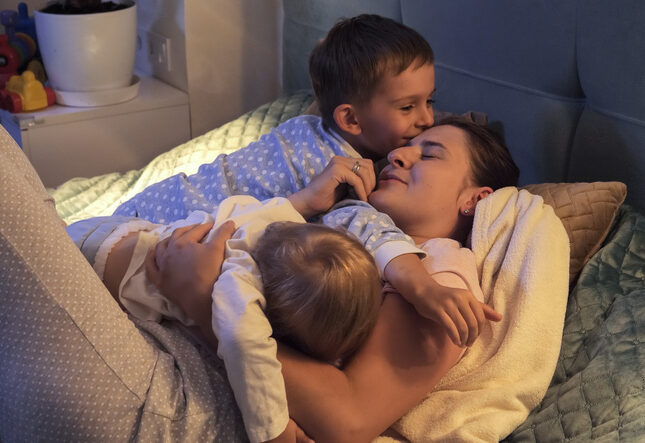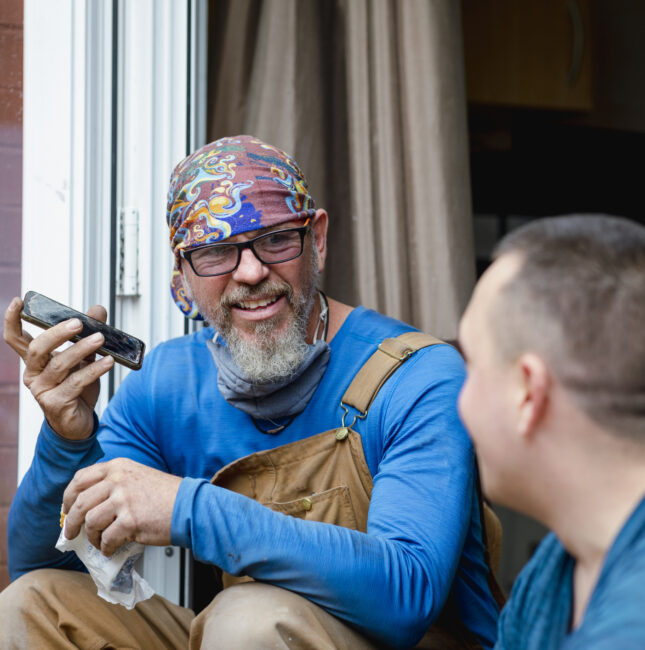Everything you need to know about supported playgroups
March 20, 2024
Are your little ones climbing the walls at home? Have you ever thought about attending a playgroup but not sure what to expect? Perhaps, you’ve heard the term, ‘supported playgroup’ and wondering what that’s all about. Here, we unpack the ins and outs of supported playgroups and how they differ from your regular playgroup.
It may come as no surprise that today’s children are engaging in much less play with other children than previous generations. There are many reasons for this, such as changing family structures, an increased focus on literacy and numeracy and an increase in passive entertainment. Playgroups provide a safe environment where children can play with similar aged children on a regular basis, and as such they offer an important opportunity for parents to assist in their child’s development.
CatholicCare’s Supported Playgroup Leader, Jacqueline Stone answers some frequently asked questions about playgroups, with a focus on supported playgroups.
How do playgroups, in general, support a child’s development?
Playgroups provide a sense of structure and routine and are great meeting points. They are particularly good for kids who aren’t accessing childcare. For children who are anxious about leaving their parents, they are great opportunities for children to explore and challenge themselves while within the safe, secure bounds of their parent.
What are some benefits for the parent/carer?
Playgroups are excellent for the mental health and wellbeing of parents and carers. They relieve social isolation and break up those long days with little ones when you are looking for ways to fill the hours. Playgroups also give parents the opportunity to form friendships and bounce ideas off others, from cooking to sleep to incidental parenting questions.
What is a supported playgroup?
Supported playgroups have all the benefits of a regular playgroup, but with additional holistic supports. Our goal is to work out how we can best support your family. Lots of the families who attend our supported playgroups have vulnerabilities – some are single parents, some are in financial distress, while others may be new migrants experiencing social isolation. We work consciously to build connections which go beyond playgroup. We see beautiful community groups form out of our supported playgroups. Families will often meet up on weekends and in some instances, we see babysitting sharing among single mums.
At supported playgroups parents receive information and education on child development and it gives families a chance to access referrals. We have strong referral pathways to speech pathology, occupational therapy, and other allied health professionals, and throughout the year we have experts come in. Parents like that we are another set of eyes on their children, particularly if they have any developmental concerns.
I’ve never attended anything like this before. What can I expect at a supported playgroup?
There is quite a structured flow to a supported playgroup. The first hour is free play, and children have the chance to play with indoor and outdoor toys while parents chat. During this time, the facilitator checks in with everyone and it is an opportunity for parents to chat about any concerns.
At 11am we have morning tea, and the kids have a story. While this is happening, we explore the topic for the week with the parents. Each term we have a different theme. Term 1 is usually child development and we have a Child and Family Health nurse come along. During the rest of the year we look at everything from attachment to emotions to safety and wellbeing. We take a parent-led approach when deciding which topics we cover.
For the children, there is lots of structured play, from singing to dancing to parachute play. There is a nice flow to the morning, and we finish with a good-bye song.
For anyone worried about the social aspect, it isn’t just two hours of having to talk to people. Sure, there are opportunities for social interaction, but you aren’t just standing around engaging in small talk for two hours.
What do families like most about supported playgroups?
Definitely, the connections that are formed. We’ve had parents who’ve become such good friends that they babysit for each other. In one instance, there were two mothers who had experienced domestic violence and they were the most wonderful supports for each other as they each navigated the court process. Many parents who attend our supported playgroups understand each other at a level that they haven’t experienced anywhere else. They truly are something special.
CatholicCare has a supported playgroup in Artarmon and an Aboriginal and Torres Strait Islander supported playgroup in Waitara.
For information and bookings, email us info@catholicaredbb.org.au or call us today on 1800 324 924
More news stories like this one
Thinking outside-the-box to house families in crisis
Housing a family in crisis presents many challenges. Read how two families in Sydney cope after escaping domestic violence.
Read MoreSupport without stigma – the non-clinical model of Dom’s Place
Discover how Dom's Place offers effective homelessness support without stigma, fostering a supportive and non-clinical atmosphere.
Read MoreWe’re empowering and connecting seniors via our seniors ministry collab
Discover the importance of empowering and connecting seniors through parish initiatives that build fellowship and support.
Read More


